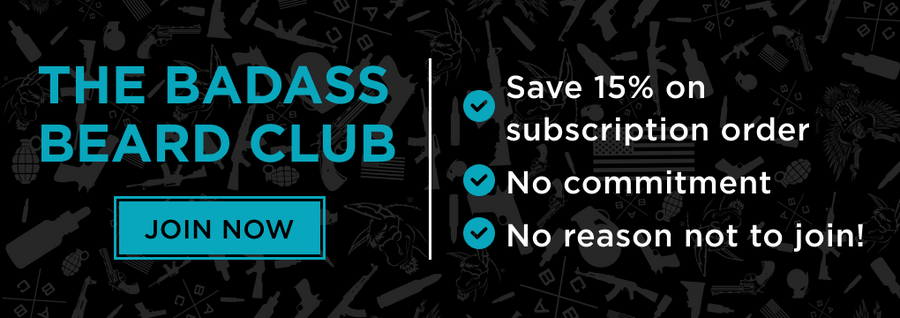TL;DR: Your beard reflects your nutrition. Protein, healthy fats, and key micronutrients like biotin, vitamin E, zinc, and omega 3s support stronger, thicker growth. Supplements can help fill gaps, but they do not replace a solid diet or daily beard care.
Introduction
A strong beard starts from within. Food choices, hydration, and sleep set the stage for how thick, soft, and resilient your beard becomes. Some supplements can help, but not all live up to the hype. Use this guide to focus on nutrients that actually support beard growth and skip the fluff.
Do beard growth supplements work?
Supplements can help if you are missing specific nutrients. They do not change genetics or turn slow areas into fast growers overnight. Think of supplements as insurance. When paired with a balanced diet and good grooming, they support stronger hair fibers, less breakage, and better overall beard quality.
- They help most when: Your diet is inconsistent, you travel often, or you avoid certain foods that provide key nutrients.
- They help less when: Your diet is already complete and you expect rapid growth speed. Quality improves, but timing varies.
Which vitamins help with beard growth?
These nutrients support hair growth cycles, follicle health, and skin integrity under your beard.
- Biotin (B7): Supports keratin production and can reduce brittleness. Best used to fill a deficiency rather than megadosing.
- Vitamin E: Antioxidant support for skin and follicles. Helps reduce oxidative stress that can weaken hair.
- Zinc: Important for protein synthesis and hormone balance. Low zinc can lead to shedding and slowed growth.
- Omega 3 fatty acids: Reduce inflammation and improve skin barrier function, which helps comfort and softness.
- Vitamin D: Supports follicle cycling. Many people are low, especially in winter.
- Vitamin A and C: Aid in oil production balance and collagen formation for stronger hair anchoring.
How does diet affect beard fullness?
Diet is the foundation. Hair is built from protein and supported by fats and micronutrients. If any pillar is missing, fullness suffers.
- Protein: Aim for a source at each meal. Eggs, fish, lean meats, Greek yogurt, beans, and lentils support keratin structure.
- Healthy fats: Avocado, olive oil, nuts, seeds, and fatty fish provide omega 3s for softer hair and calmer skin.
- Complex carbs and fiber: Whole grains, fruits, and vegetables stabilize energy and deliver vitamins.
- Hydration: Dehydration makes hair brittle and skin flaky. Drink water consistently throughout the day.
Alcohol, extreme dieting, and frequent fast food can show up as a dull, dry beard. Balance is the goal, not perfection.
Should you take collagen or biotin for beard growth?
Both can help in the right context.
- Biotin: Useful if your intake is low or your beard feels brittle. Look for moderate doses in a complete multivitamin or beard formula rather than high standalone megadoses.
- Collagen: Provides amino acids that support skin and connective tissue around follicles. Many men notice improved skin comfort and less breakage with regular use.
Best practice: Choose a balanced supplement that includes biotin, vitamin E, zinc, and vitamin D, then add collagen if you want extra support for skin and hair strength.
Warning signs of nutrient deficiencies
If your beard is not responding to consistent grooming, look for these signs that nutrition might be the missing piece.
- Excess shedding or slow recovery after trims: Possible protein, zinc, or vitamin D gap.
- Brittle hairs and split ends: Possible biotin, vitamin E, or omega 3 gap.
- Dry, itchy skin under the beard: Possible omega 3 or vitamin A gap, or overall low hydration.
- Low energy and poor sleep: Can impact hormone balance and hair cycles. Focus on whole foods, minerals, and consistent rest.
How to build a beard friendly nutrition plan
- 1. Anchor your protein: Include a protein source in every meal. Target a palm sized portion.
- 2. Add healthy fats: Include nuts, seeds, olive oil, or fatty fish most days.
- 3. Eat the rainbow: Colorful fruits and vegetables deliver antioxidants and vitamins A, C, and E.
- 4. Hydrate: Carry a water bottle. Aim for steady intake throughout the day.
- 5. Supplement wisely: Use a complete beard formula with biotin, zinc, vitamin D, and vitamin E. Add collagen if you want extra skin support.
Do not forget external care
Nutrition builds better hair, but daily grooming protects it. Use beard oil to reduce breakage, keep skin calm, and make new growth look its best. Consistent washing, oiling, and brushing help your nutrition work harder by protecting what you grow.
Recommended Next
- Beard Care: Badass Beard Growth Kit
- Learn More: The Science of Beard Growth







